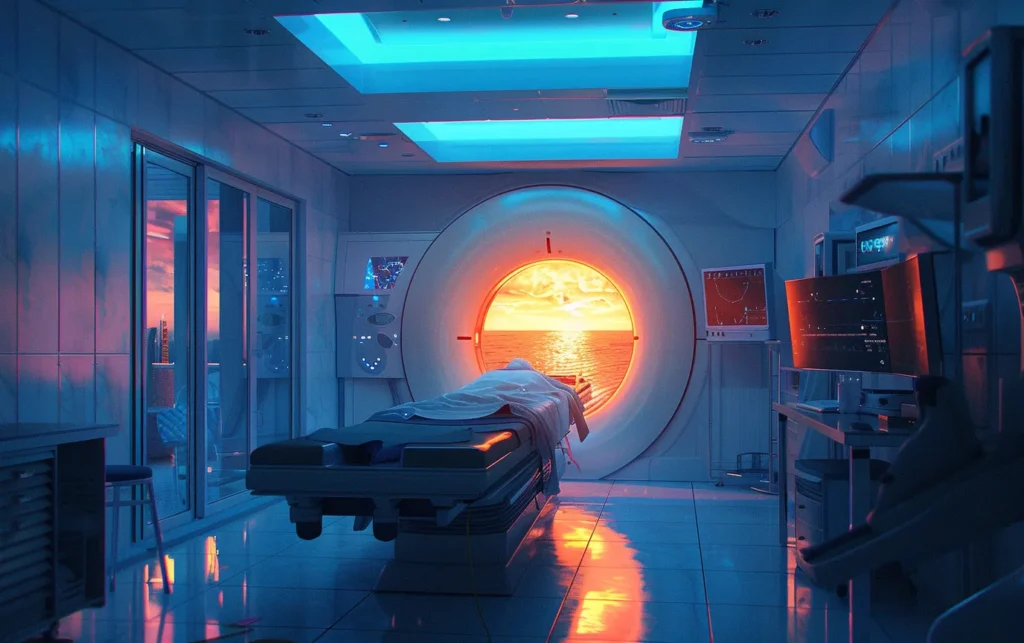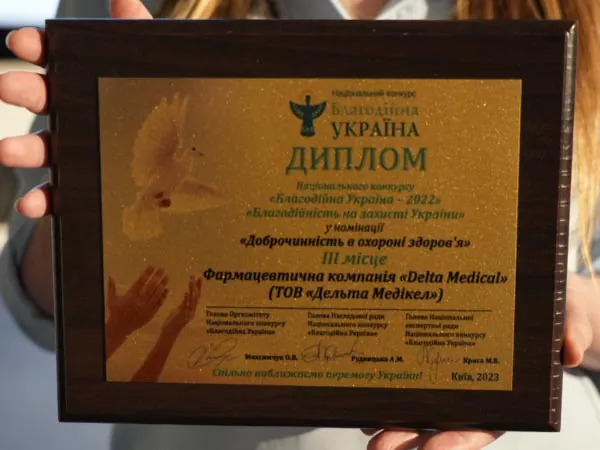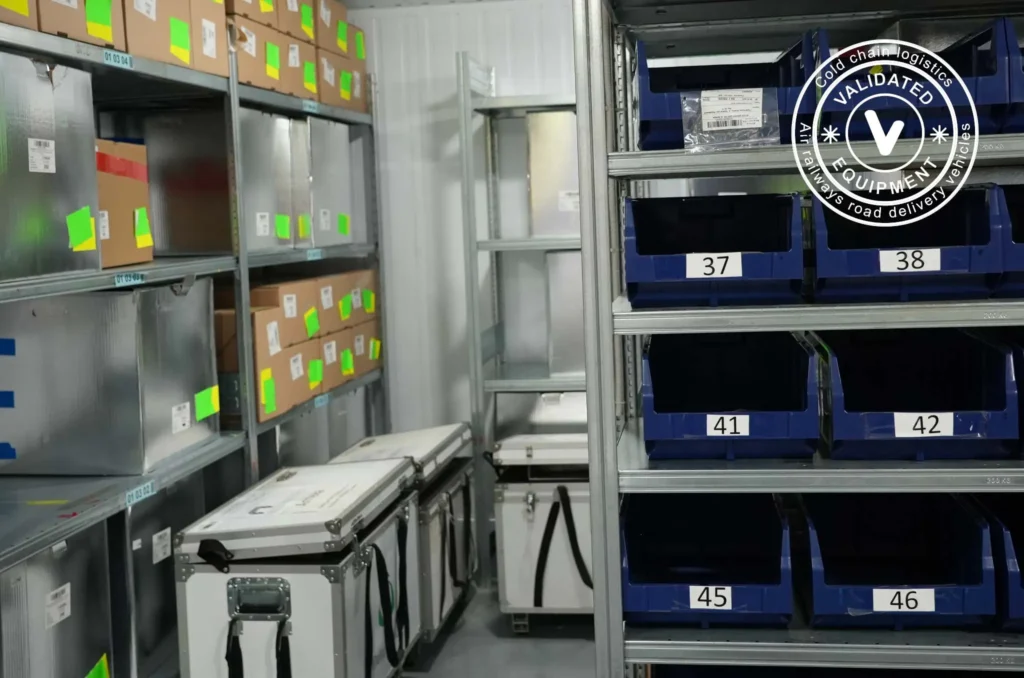
In recent years, Ukraine and Kazakhstan have made significant strides in the fields of radiotherapy and nuclear medicine, despite facing unique challenges.
Ukraine: Overcoming Challenges to Advance Cancer Care
Current State and Challenges
Ukraine’s healthcare system, particularly in oncology, has faced significant challenges due to geopolitical events.
Dr. Beznosenko, Chief Medical Officer of the National Cancer Institute in Kyiv and president of the Ukrainian Society of Medical Oncology, highlights the pressing needs:
“There is an acute need for chemotherapy medications and disposable medical devices. The supply chains have been disrupted by the war.”
Before recent conflicts, Ukraine had 52 radiation therapy centers with 86 Co-60 machines (81%) and 20 linear accelerators (19%).
However, the country lost control of 10 cancer centers and over 13 External Beam Radiation Therapy (EBRT) machines in occupied territories, representing 17% of Ukrainian EBRT machines.
Expansion Plans and Equipment Acquisition
Despite these setbacks, Ukraine has ambitious plans to modernize and expand its nuclear medicine capabilities:
- The Ukrainian Ministry of Health, in collaboration with Medical Procurement of Ukraine (MPU), plans to acquire 15 linear accelerators and 28 MRI machines by June 2024.
- Procurement of additional PET-CT scanners is planned for 2025.
- The Nuclear Medicine Centers Project aims to establish state-of-the-art facilities in Kyiv, Western, and Central Ukraine, equipped with cyclotrons, PET-CT scanners, and radiopharmaceutical synthesis hot cells.
MPU CEO Edem Adamanov stated:
“We’ve transitioned to three-year contracts for oncology drugs, a significant victory that reduces treatment interruption risks and ensures consistent access to essential medications.”
Key Institutions and Projects
Several institutions are at the forefront of nuclear medicine advancements in Ukraine:
- The National Research Center for Radiation Medicine of the National Academy of Medical Sciences of Ukraine
- The Nuclear Medicine Center at Kyiv City Clinical Oncology Center
- The Department of Nuclear Medicine at the Heart Center in Kyiv
- The Nuclear Medicine Department at the Institute of Neurosurgery in Kyiv
- The “Neutron Source Based on a Subcritical Assembly Driven by a Linear Electron Accelerator” at the National Science Center “Kharkiv Institute of Physics and Technology”
Radiopharmaceutical Production in Ukraine
Recognizing the logistical challenges of importing short-lived radiopharmaceuticals, especially during wartime, Ukraine is planning to establish domestic production capabilities.
The focus will be on isotopes like fluorine-18 fluorodeoxyglucose (18F-FDG), which has a half-life of approximately 110 minutes.
This initiative not only addresses immediate needs but also positions Ukraine as a potential regional supplier post-conflict.
PET-CT Scanners: A Critical Need in Ukraine
Ukraine currently has only three PET-CT scanners, all located in Kyiv, with only two functioning since the onset of recent conflicts.
This scarcity poses significant challenges for patients across the country. International efforts are underway to address this shortage, with calls for donations of PET-CT scanners and cyclotrons to key medical centers, such as the Lviv Oncology Regional Therapeutic and Diagnostic Centre in western Ukraine.
The Significance of PET-CT Scanners
PET-CT scanners represent a significant advancement in medical imaging technology, combining Positron Emission Tomography (PET) and Computed Tomography (CT) into a single, powerful diagnostic tool.
Key advantages include:
- Enhanced diagnostic accuracy through merged functional and anatomical imaging
- Early detection of abnormalities at the cellular level
- Efficient imaging process, reducing the need for multiple separate procedures
- Versatile applications in oncology, cardiology, and neurology
- Advanced research capabilities in drug development and personalized medicine
- Optimized treatment monitoring for more effective patient care
Kazakhstan: Nuclear Medicine in Central Asia
Radiopharmaceutical Production and Distribution
Kazakhstan has made significant progress in radiopharmaceutical production and distribution.
A major breakthrough came in June 2024 with the first-ever air transportation of radiopharmaceuticals in the country’s history.
Ulugbek Medeubekov, Director of the Department of Medical Care Organization at the Ministry of Health, stated:
“The issue of air transportation of radiopharmaceuticals has become urgent with the development of nuclear medicine in Kazakhstan.
These drugs have a very short half-life. For example, the amount of 18F-FDG decreases by half every 110 minutes.
Therefore, delivery time from manufacturer to patient is crucial and affects the number of patients who can receive timely and vital diagnostics and therapy.”
This development allows for the expansion of local radiopharmaceutical production and distribution.
For instance, ultra-short-lived preparations produced by the Institute of Nuclear Physics in Almaty can now be delivered to the Nuclear Medicine Center in Shymkent.
Cyclotron complexes in Astana and Semey can also use air transport to supply their products to other nuclear medicine centers across the country.
Key Institutions and Developments
- Kazakh Institute of Oncology and Radiology: A leading institution in cancer research and treatment in Kazakhstan.
- Department of Clinical Oncology and Nuclear Medicine at Semey Medical University: Named after D. R. Mussinov, this department plays a crucial role in education and research in the field.
- Institute of Nuclear Physics in Almaty: A key player in the production of radiopharmaceuticals.
- Nuclear Medicine Center in Shymkent: A recipient of radiopharmaceuticals from Almaty, expanding access to nuclear medicine in southern Kazakhstan.
- Cyclotron complexes in Astana and Semey: These facilities contribute to the local production of radiopharmaceuticals, reducing dependency on imports.
Air Transportation of Radiopharmaceuticals
After extensive discussions and preparations, including a June 2023 inter-ministerial meeting with participation from Parliament deputies and representatives from healthcare, energy, transport, and Air Astana, the national air carrier received a license to transport radioactive pharmaceuticals in April 2024.
The first air transportation of radiopharmaceuticals took place on June 21, 2024, from Almaty to the Nuclear Medicine Center in Shymkent.
This development allows for weekly deliveries of 18F-FDG, enabling PET/CT studies for more than 20 patients per shipment.


